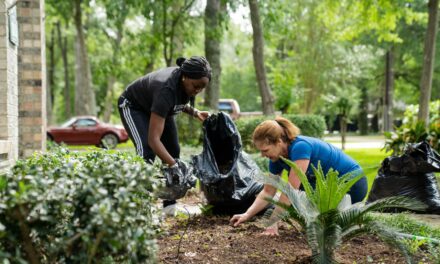Do you find yourself primarily connecting with people your own age at church? Does it ever feel like something is missing? In a culture where age-related divisions have become the norm, perhaps it’s time to reconsider how humility can bridge the gap and foster meaningful intergenerational relationships in our church communities.
Humility and Intergenerational Relationships
Our culture has slowly divided us into age-related groups for the past 100 years, with the educational system being the front-runner in this process. While grouping by age has its benefits, we have lost the enjoyment of being connected with different generations. As a result, we see more division between generations now more than ever before.
The younger generations are not interested in learning from the older, nor are the older generations interested in listening to what the younger have to say. We have lost the beauty of learning from those younger or older than us. Where has our curiosity about others and their life experience gone? What has happened to the wisdom of learning from one another?
Intergenerationality and The Church
We have also allowed this trend to trickle and grow in the church. Most churches are multigenerational, but few are intergenerational. The primary difference between the two words is this: “multi” includes many different generations who are present within a group of people. “Inter” includes many different generations who occur together. There is a significant difference between being “present among” and “occurring together.”
In other words, we are great at interacting with other believers within the church who are our same age, but we aren’t crossing the bridges to be involved with different generations. Of course, there are benefits to spending time with fellow believers who are your age or in a similar season of life. These benefits might include understanding, empathy, camaraderie, and companionship as you tackle shared experiences or unique milestones (post-graduate life, parenting, empty nesting). Spending time with people your age in a Life Group or at Midweek is beneficial, but what if you could reap these benefits and then some? What if we practiced intentionality and creativity and sought to close gaps in age division? What would that look like in the church?
It would require humility (not thinking of ourselves as more knowledgeable than others), intentionality (not closing ourselves off to opportunities to engage with older and younger generations), and curiosity about how others think. We need to attempt to see the world through another’s eyes. Sure, there are many differences across the ages and stages of life, but what if we focused on the commonalities? What about the cross, the resurrection, and the great commission? What about our Christian unity?
Practical Steps Toward Intergenerationality
So, how can we move toward intergenerationality?
- Start with prayer. I encourage you to pray for God to create in your heart a love for all people of different ages and ethnicities within your church.
- Be willing to step out of your comfort zone.
- Look for ways to engage with others. Invite someone you would like to get to know for dinner or coffee. Ask a pastor if he knows anyone in your church who is new to the area or maybe a widow with no family. Look for someone sitting by themselves in church and ask if you may sit with them. Are there youth in your church who don’t have a mom, dad, or grandma? Ask their guardian if you could attend a school event or bring their family dinner one night. Be creative, curious, and humble.
- Be patient. If this is foreign to you or those around you in your church, be patient with your brothers and sisters. Progress takes time and patience.
An Intergenerational Success Story
We started a women’s Bible study on Wednesday evenings several years ago at my church. It started out small. The women were primarily mature believers. God put on my heart a hunger for younger women to come, for women who were new believers or new to church. It took a few years, and it was discouraging at times when only a few were attending, but God so sweetly reminded me that even if only one woman showed up, I needed to be prepared and should continue to pray.
This past year, God brought a younger woman to co-teach with me in Bible study. Her intentionality of reaching out to younger women in our Young Adult ministry got some young college-age ladies to start attending. This brought such a spark within our group. Our 70 and 80-somethings loved hearing what God was teaching our 20-somethings. And our 20-somethings loved hearing the life experiences of our 70 and 80-somethings. It was a joyous time of fellowship, laughter, and learning God’s word together. A group of women of all ages and stages of life studying God’s word together and creating a community of love and support is a lovely picture of what Paul encouraged Titus to teach the women in Crete.
God has also recently brought some lovely interethnic women to our study. What I have loved most about the women God has joined together in this study is how we all want to learn about each other, what makes each one distinct, and what commonalities we share through our love of Jesus. There have been some growing pains, but I love the honest questions and answers that are shared among the ladies. The study has organically gone from teaching to discussing what the Holy Spirit taught us all during our time in the Word together.
This is what a church should look like: People of all ages and ethnicities working together and learning from one another, but this doesn’t always happen quickly (and sometimes not even organically). You have to be intentional. People who are different from us can cause some discomfort, but that isn’t the New Testament model of the church. In his epistles, Paul is constantly tackling the differences between the Greeks and the Jews and the religious baggage they all bring to this new thing called Christianity. He teaches about the importance of the unity we all have in Christ.
So, how can you embrace this unity and cultivate intergenerationality in your own circles of influence?








